Last Quarter: On violence

It's Friday. Hello. I'm writing in the middle of waiting for results for an important medical test. Important and nerve-rattling, for reasons I won't go into unless there's something that merits explaining to other people. In all likelihood there won't be something like that, but it's that fraction of a chance that sends me gratefully into the flow of words — knowing that whatever happens, I will have distracted myself from fear and completed one more work that I would rather not wait until it's too late to perform.
Fitting, perhaps, that after thinking about one particular topic for most of my life and planning to write a piece in this vein for the better part of ten years, I had determined that this week I would finally write my central thoughts on violence. I say central in that they are not my first and will not be my last, but they govern all other thoughts that pass through their nexus.
These thought on violence begin with the awareness that I am living in an extraordinarily, catastrophically violent time, and I have witnessed violence and been subject to it in ways to which I did not and would never consent. I have seen and experienced far less of such violence than some people do, but enough to feel rage, despair, and sickness at my own memories and at what I know is being enacted on others. That is, I suspect, the average encounter with violence that most humans would statistically know. Outside that range, the balance is of course tipped far more toward experiencing a lot of violence, rather than none. And the very world we inhabit is being destroyed in a violent fashion, on every conceivable level that violent destruction can occur. Perhaps even in ways we do not yet conceive.
To examine such injustices systemically inflicted on both human and non-human bodies and spheres, in a pragmatic evaluation I can easily call that violence unnecessary, and as a rare moral absolute I will call it evil. The name I prefer to use for this sort of violence is in fact violation, and all violations are interrelated through their reliance upon and roots within an extractive, entropic paradigm: the imperially centered, individual "self" uses and disposes of "everyone/everything else."
The trouble with portraying violence in these terms, however, is that as honest and accurate as they are, from them it does not follow that all violence is violation. Modern political movements of all flavors are familiar with this distinction, no matter where they might draw the line; and I also do not think I'm setting out to argue anything that a good deal of humans haven't already known and carried in our very blood since before the first so-called civilizations. But to properly make salt for the eclipse, I do believe there will be some necessary violence, and it is time for me to address what that is.
In order to reach my conclusion, I must step — as a leftist — through several problems that the left wrestles with, or does not wrestle with enough. This will be one of the newsletter's longer reads, but also among the most significant since I began it.
All manner of violence, including sexual violence, is discussed here continuously.
I. Violence as sustenance
In the beginning, one form of life killed another form. Well, that is a Cain & Abel style of exaggeration. There are many organisms who sustain themselves through taking advantage of nutrients from already-dead matter, or through using sunlight to spur nutrient-producing chemical reactions, or through growing on and in living matter. They do not need to intentionally kill anything.
Nonetheless, death must happen in order for those organisms to benefit, or the risk of death must be accepted as parasites can demand too much and a bacterial infection can overwhelm. Even with plants, although they can survive with only light and water, most species do not grow hydroponically outside of human interventions, and to keep plants in all the ecosystems that need them a layer of humus-rich soil is required, along with regenerative but temporarily destructive fires.
All this is to say nothing of animals. If anyone harbors concerns about violence as the infliction of suffering, the entire animal kingdom should have much to answer for. There are the carnivores (and the subgroup of insectivores) who kill other animals to live, and there are the herbivores who kill plants, and there are the omnivores who might kill anything. Contemporary research is showing, more and more, that plants and fungi exhibit behaviors that suggest sentience as much as we might observe in various invertebrates, even if these non-animals lack nervous systems and may not experience anything that a vertebrate animal would be familiar with. So to worry about ending the lives of sentient beings in a way that causes suffering, we cannot only worry about killing animals, and we cannot only lay the blame on predators.
I have read convincing arguments that to avoid living via suffering, living via death, living via violence, the only ethical food choice is fruit. Eating a fruit does not kill the plant that it came from, and the plant bearing the fruit specifically evolved to grow that fruit for other organisms to consume and distribute the seeds in excrement.[1] For all humans to become ethically-motivated frugivores, that would be a fitting loop to close: chimpanzees, our closest relatives, mostly eat fruit, and we once presumably did the same. It's why we love sugar so much.
But I can't seriously suggest that a chimpanzee is a nonviolent fruit-lover, given the rest of their behaviors and the fact that they certainly do eat flesh too. In turn, humans cannot live by fruit alone. We need nutrients that are found in other parts of plants, and yes, in animals.
Here I must pause to acknowledge common vegan and vegetarian rebuttals to what I've written so far. Because I share common ground with that community in opposing factory farms and similar exploitative practices, I try to take these rebuttals seriously even while disagreeing, so I hope I am representing them correctly here:
- "Even if no other life makes this choice, humans have the ability to choose to inflict less suffering in our food choices, and so we should."
- "It's at least more ethical to eat plants, which are barely like us in consciousness, than to eat something as clearly intelligent as a pig."
- "We possess or can develop the technology to evolve past any need to eat animal products, so our omnivorous dietary requirements could soon be antiquated."
- "No matter how free-range, cage-free, and otherwise 'kind' a livestock farm is, a life spent in captivity is a life of greater suffering for those animals than if they were free."
I think I understand where all of this thinking comes from, and I will link my First Quarter post from two weeks ago for the section near the end that summarizes my objections to using animals the way they are currently used — and also some of my reasoning behind why I still eat animals. To avoid redundancy, I will not restate all of it here, but I'm tackling the matter again because of how violence as sustenance is violence's primordial problem, the ur-problem. As to the specific arguments in the above bullet points, I ask these questions first in answer:
- If humans are no better than any other life, then is it not arrogance to require ourselves to "be better" than the others in our food choices?
- For many purposes, perhaps we should favor eating plants over pigs, but given the ambiguity around just how sentient plants are, are we somehow doing the plants justice by never eating pigs?
- Since it's impossible to make something from literally nothing, what extractive, exploitative, ecologically ruinous practices would ultimately be necessary in order to bypass existing food chains and engineer our bodies into herbivorousness?
- If all livestock farming is wrong, what about hunting?
I don't want to make strawmen; the fact is that people become vegan or vegetarian for different reasons, and I've seen or heard many express that under the right conditions they would eat meat, dairy, and/or eggs again. Their dietary restrictions are their most ergonomic form of resistance to the unequivocally evil sorts of food production that exist today. As detailed in that post last month, I don't really have the option of resisting that way, but if my own circumstances were different maybe I would also renounce animal products until I could guarantee that all the animals were either hunted after free lives (and not culled en masse) or raised in truly symbiotic companionship.
But by the same token, if I wouldn't rapidly deplete my body of crucial vitamins, I could perform the same renunciation for plants — because plants also deserve good lives and non-monoculture environments, and the supply chains that currently give us plant products have plenty of their own injustices done to the humans farming the plants and the animals living among the plants. I don't say this to smirk and point at the vegan as a hypocrite, but only to suggest that there are no perfect solutions to resisting our modern food system other than outright changing what the system is.
The system that I believe we need is much more locally rooted, bound to the land, managed through permaculture, reliant on life cycles that sometimes require the killing of animals, and sometimes the killing of plants. Whatever the organism that dies, its life should be taken with reverence, ceremony, and a knowledge of blood-debt: our own bodies are owed back to the soil and the scavengers. Systems like these are what surviving indigenous peoples know, and what everyone can recover if we listen. And I suspect that for the vegans who do assert that it is always utterly wrong to eat an animal, take its eggs, etc., they are grasping for ways to describe the dissociation, the severed land relations, that industrialized food has created for them. Without those old connections, it can be impossible to think of living harmoniously with the earth as requiring death.
But as far as I can tell, it does — and since most death involves at least brief violence, living harmoniously with the earth demands violence, too. If the right balances are maintained, however, the violence is not violation.
II. Violence as self-defense
So as indicated above and in described further in last month's post, I never quite became a vegan or even a vegetarian. By contrast, though, I spent a few years of my late adolescence and early adulthood as a passionate pacifist, opposed to all forms of human-on-human violence.
With the foundation laid by my mother, who lived through and participated in anti-war activities during the Vietnam War, my fetish for nonviolence started when imperial troops were deployed in Afghanistan as a response to the 9/11 attacks, and deepened when the bombs and boots spread to Iraq. My feelings crystallized into a very secular, colonialist style of ahimsa when I watched the heavily-awarded 1982 biopic Gandhi, starring Ben Kingsley as the Mahatma himself. There are plenty of vectors by which to critique that film, including its creation by anglo filmmakers including the director Richard Attenborough, and the editorial choices made around various Indian and non-Indian characters — or the larger issue that unlike what the film hagiographically shows, the real Gandhi was not a saint, often lacking in class analysis and showing a mixed (at best) attitude toward the caste system — and also the film glosses over the complexities of Gandhi's satyagraha philosophy, for despite all the circumstances in which the real man urged nonviolence, he also wrote:
I do believe that, where there is only a choice between cowardice and violence, I would advise violence.
I did not know that quote or much postcolonial criticism when I watched Gandhi the film, however; after my first viewing I was simply an instant convert to the idea of nonviolence at any cost. It played well with my forays into Catholicism, as I saw Jesus as another ultimate teacher of peace. An eye for an eye makes the whole world blind. Turn the other cheek. So it goes.
While the left can divide itself along various lines for political veganism and animal liberationism, typically those stances arise among leftist groups where anarcho- is a prefix of choice. My own heart lies there, too, but a good deal of modern leftist movements in the wake of Gandhi have not really engaged with his own veganism[2] (just as I didn't), instead keeping their view to the human sphere. Probably the largest and most movement-splitting question across the left is simply: should we operate nonviolently in all cases to achieve our goals, or must we sometimes use violence?
In Black liberation work, I see this sometimes reductively summarized as whether someone leans toward Martin Luther King, Jr.'s school of thought, or toward Malcolm X and the Black Panthers. Equally reductive parallels include the contrast between nonviolent anti-war protests vs. the Weather Underground, or contemporary leftist pushes for tighter firearms legislation vs. organizations like the Socialist Rifle Association and John Brown Gun Clubs. Leaving aside the fact that Ted Kaczynski was far from sympathetic to leftism[3], many on the left these days are grappling with how much the Unabomber's violent attacks inherently undermine the value of various ecological assertions he proclaimed in his manifesto.
I could go on. The point is that nowadays the discursive wheel is still turning, online and off, with various camps proclaiming, "Striking back at someone who strikes you makes you just as terrible as them, and makes your movement look bad," versus, "It's incumbent on humans to defend ourselves against systemic violence." And I did not really understand the latter attitude for a long time, no doubt because I was afforded some comfort and safety from certain systemic violences — that is, violations — that other people did experience.
By the end of college, I had experienced sexual violation, and I had listened more to people who experienced violations of other kinds, and I had taken in more art and philosophy that was grounded in those perspectives. A few years later, in the course of doing labor activism I read Pacifism as Pathology by Ward Churchill, himself a highly complex personality who may or may not be indigenous and has indigenous critics — but that one essay had some convincing points, taken on its own. I began to support violent political resistance under some conditions, just as I also began to understand the difference between violence to living things and damage to inanimate property, so I feared nothing from anarchist black blocs.[4]
Without hesitation, I can now assert positions such as:
- People being sexually assaulted should be allowed to harm and even kill their attackers in the moment, for the sake of self-defense.
- Likewise for other forms of active assault.
- Communities under colonial/imperial invasion have the right to defend themselves with guerilla warfare, although they have an obligation to avoid innocent casualties.
- Protesters who bring weapons or plan violent strategies in the event of police repression are being wise, not foolish, provided that all participants in the protest consent to the risks of violent engagement.
- If leftists and/or marginalized populations acquiring guns is not a revolutionary requirement, it is at least highly advisable as a personal safety strategy under present conditions.
As of a few years ago, I have my own license to carry, though no firearms yet (and the first gun I ever buy will absolutely be for hunting purposes above all else).
This kind of thing does not make the pacifist left or the liberal pseudo-left very happy. But to them, for better or worse, I would give them Gandhi's own words yet again, extended from what I quoted above.
Self-defence... is the only honourable course where there is unreadiness for self-immolation. Though violence is not lawful, when it is offered in self-defence or for the defence of the defenceless, it is an act of bravery far better than cowardly submission. The latter befits neither man nor woman. Under violence, there are many stages and varieties of bravery. Every man must judge this for himself. No other person can or has the right.
So here is another kind of necessary violence. However, if the route to that conclusion feels slightly askew, poorly paved, I think it's because the examples I've given include cases of violence (such as by the bombers mentioned) done not in the moment of immediate threat, but rather as a statement, as an action done outside the threat itself.
What happens when violence goes beyond sustenance, beyond self-defense, into the hall of mirrors of retaliation vs. justice?
III. Violence as vengeance
At the top of this post, I laid the image of Judith slaying Holofernes, a painting theme depicted several times throughout so-called Western art history, especially during the Renaissance and Baroque periods. There is an equally famous, extremely similar version by Caravaggio that looks like this:

Here, Judith — defender of Jerusalem against the Assyrian general Holofernes — kills her foe with a look of concern, while we see the man's shock and pain as though upon a still living face. By comparison, the later version by Gentileschi shows two women holding the man down, with very little suggestion of remorse on their part, and the man's expression is either already dead and devoid of agency.
Much has been made of this contrast because of how Artemisia Gentileschi herself was a rape survivor, and people love to ask whether she showed such an unrepentant, ruthless Judith as a commentary on the retribution due to her rapist. At the risk of reducing Gentileschi to being a victim before simply being a underappreciated painter, even as an extreme Caravaggio admirer I admittedly like Gentileschi's version of this scene the most because in addition to the utterly visceral movement displayed in the women's bodies, it does speak to me politically.
There is something to be said for not only killing your rapist in the heat of the attack, but also personally administering cold, merciless death after the fact if they neither apologize nor show any indication they won't harm you, or other people, again. It's self-defense in slow motion, self-defense against the future. And in societies where people who have been raped are denied justice or protection by systems that favor the rapists, murder might be the only way that the wronged party can find for closure.
Is that kind of closure its own justice, or "merely" revenge? I think the latter, because to me an ideally just scenario involves a restorative component where all parties recognize the wrong that's been done, all parties desire to heal and mend relations, and all parties' fundamental humanity can afford to be recognized in the proces. But if revenge is not as complete and communal as justice, I think it can have its time and place, especially when there is no community of support to begin with.
Far be it from me to call someone's violent reaction under unjust circumstances "just as bad" as the violation that provoked it.
IV. The trauma detour: violence as control
I could have ended here. Many people do, because many get fixated upon the violence of part II and the violence of part III. The fixation is especially common in online leftist discourse, and it's part of the exoskeleton of our current social crisis: some people decry all defensive and vengeful violence, other people try to convince them otherwise, and the camps talk past each other and go in unproductive circles and hollow each other out.
Among the people who will die on the hills of II and III, advocating for that necessary violence as if they have nothing else they can do with their lives, the common theme I see again and again is an allegiance to violence as control. This manifests in various ways:
- Carceralism (as opposed to prison abolition), wherein the speaker believes that even in an ideal society, people who make x class of mistakes should be brutally locked away on a systemic scale and never allowed the possibility of changing behavior.
- "I oppose the death penalty, but for this person I'd make an exception."
- Blood feuds, with families exacting death back and forth for generations instead of attempting reconciliation.
- Wars of aggression described as defensive wars, on manufactured pretenses.
- Authoritarian fetishism, down to non-ironic gulag comments and attempts to explain away concentration camps for Uyghurs as if Euro-imperialists have the monopoly on genocide.
Such attitudes and behavior patterns are immature, unfortunate, and dangerous. And I find that universally, they link to trauma that has not only gone unresolved but has festered into its own transformative, destructive force. To experience trauma is to undergo a complete nonconsensual loss of control over one's existence; leave that feeling for long enough, cultivate it with repeat violations, and it can take an astonishing degree of resilience for someone to not internalize the notion that in order to avoid future trauma, they must violate others, forever and ever.
This is not political horseshoe theory at play; the horseshoe implies that the far right and the far left act in such similar ways that they are virtually indistinguishable, and it also implies that there's some reasonable degree of right-wing opinions that can be suckled before going "too far." I'm thinking instead about the literally embodied, highly nuanced phenomenon of hypervigilance. And much as I lack any time in my short life to engage with dyed-in-the-wool tankies, I believe this hypervigilance can persist whether or not someone supports the existence of top-down state governments. Anarchists, too, can be quite hypocritical about valuing others' autonomy up to the point where it suddenly requires them to accept behaviors (or types of humans) that, though fundamentally not a threat, remind them of old, wretched wounds.
In our current crisis, many if not most people are struggling regularly to balance hypervigilance against the sense of safety and dignity as universal rights. The struggle happens on small, interpersonal scales, and also on mass scales. Losing that struggle manifests as a descent into constant walling-off, atomizing, alienating, lashing out, mistrusting, and making cruel remarks at others' expense out of the desperate fear that you won't be next. It's Mark Fisher's vampiric castle[5]; it's queers sending each other death threats for linguistic generalizations; it's men who could have been kept from the rabbit hole falling down, down, down through an oubliette of "just asking questions" videos.
Winning the struggle manifests as the recognition that your pain is real and so is others' — that you are not the protagonist of the eons-long narrative of human suffering — that you must survive the aftermath of your violation in order to help other people, not to become another agent of abuse.
V. Violence as justice
If the detours of trauma can be avoided, there is another kind of violence that can still be discussed as more than vengeance — as actual justice, in tandem with the restorative variety.
I have agonized for a long time about how to put words to what is in my mind, but over the summer when I read Sand Talk I found that Tyson Yunkaporta and a 60,000 year old cultural context have of course already done this work. Writing about a young friend of his, Yunkaporta mentions:
We've spent a lot of time sparring in a traditional [Aboriginal] style that was once done with stone knives. The rules of engagement are that you can only cut your opponent on the arms, shoulders, or back (extremely difficult to do) and — here's the kicker — at the end of the fight the winner must get cut up the same as the loser, so that nobody can walk away with a grudge. It's hard enough to cut somebody on the back with a stone knife when they're trying to do the same to you, but it's even harder when you know that every time you cut them you're really just cutting yourself. In our yarns following these sessions we decided this kind of combat forces you to see your enemy's point of view, and by the end of it you can no longer be opponents because you're connected by mutual respect and understanding.
This would not work in a still-colonized, still-capitalist community where recognition of and reparations for past violations have not been offered. Good faith engagement would be impossible to assume. Combatants would not be meeting on equal footing.
But as an aspiration for a better world, and as a memory of more balanced times, I find the prospect of this healing violence beautiful and genuinely liberating. In the centuries of hardship to come, as things fall apart and are rebuilt, I want the story of those old knife fights held close and told over and over, and I could see their underlying principles working for most peoples one day. No nation-state is required, but there would still be the tight, consensually-managed community protocols; it would allow someone to have their vengeance while also keeping a check on their ego. Deal punishment out to the one who wronged you, but bear in mind the limitations.
It would not address when repeat violators need to be ostracized, which is another kind of defensive violence, but I leave this kernel laying as a new ethos for downsizing and distributing our necessary violence to a far less centralized, less metastatic scale.
VI. Violence as ritual
What the kernel of violence for justice can germinate, grow, and blossom into: ritual.
We can weave this ritual back into the other parts of necessary violence. Ritual for how to heal our trauma without creating more of it. Ritual for how to honorably defend ourselves from violation. Ritual for how to feed and provide for ourselves even as it entails the taking of life. Ritual for how to return ourselves to the earth that gives us so much.
And we may even create ritual outlets for channeling and mediating our most violent impulses that otherwise have nowhere good to go. For years, I've been framing this matter in my mind as three general areas of violent human rituals that already/still exist in this civilization but are not accorded anywhere near the degree of sanctity that they deserve:
- Sport. For this ritual violence there is no script and no predetermined outcome, but there are assumed roles and rules of engagement.
- Theatre. For this ritual violence there are no rules of engagement (the limits are merely what can be imagined happening in fiction), but generally there are a script, a predetermined outcome, and assumed roles.
- Kink. For this ritual violence there is no script, no predetermined outcome, and the rules of engagement are highly variable (limited to the participants' limits and desires), but the assumed roles remain.
Through all these methods[6], according to one's own preference, humans have the ability to push each other through transformative experiences, many of which require physical ordeals, psychological ordeals, or both. There we can experience violence safely, deal it safely, and survive.
Of course sport, theatre, and kink can all turn disastrous when they're conducted without self-awareness, protocols, and their own underlying imbalances, so I do not mean we must simply enshrine these rites more centrally and expect to find a utopia at the end of it. But I do mean that a utopia which doesn't make room for these mechanisms will be doomed to crumble.
Planet of the apes?
There are so many debates about human nature not because there is one, and I would argue not because there is none. Rather, I grew convinced a long while ago that there are two. For this I will credit the philosopher David Livingstone Smith's book The Most Dangerous Animal, with the caveat that my thinking since reading it has gone wildly down new paths and may or may not resemble what Smith wrote then or would say now.[7]
Simply put, as I mentioned earlier chimpanzees are our closest evolutionary relatives. But depending on which sort of chimpanzee we're talking about, vastly different behavioral tendencies are suggested in our ancestry. There is the common chimpanzee, Pan troglodytes, versus the bonobo chimpanzee, Pan paniscus. Both are highly social animals, but a common chimp community is far more warlike, aggressive, and patriarchally governed; a bonobo community is far more diplomatic, gentle, and matriarchal. It could take a lifetime to unpack the gendered implications of this comparison, and I'm not going to go that direction at the moment — for purposes of this writing, the point is that our species has one cousin who's quite clever and able to socialize as it suits them, but has a destabilizing penchant for rape and murder; and then our other cousin is their twin, who's not incapable of violence but doesn't treat relations as a zero-sum game, and who prefers to spend more of their recreational time having sex, including queer sex (especially lesbian sex).
Which of these behavioral patterns has humankind inherited? Surely not one or the other, but both. And as it took millions of years for the same culturally engrained routines to pass from our common ancestor down to us, it will also take millions more years for us to fully transcend any of that. For whatever duration of time that we can really be described as humans at all, we will have some balance of a propensity for violation-violence, and a propensity for unconditional love and trust.
I am thinking a few steps further than this, however. For suppose that the balance is far less common chimp than tender bonobo after all — or suppose the bonobo side prevailed in a few more centuries, millennia, epochs. Even then, violence would not be gone, for I would gamble a fair deal on the likelihood that we would still be omnivores, and so a certain killing instinct would not have left.
Violence is written into the fabric of life. The crime is not that it happens, but instead when it happens entropically, rather than regeneratively. The former is violation, but the latter is mere violence — just, only, plain violence.
It is our birthright. In our current time, it will deliver us. And in our best futures, it waits there on hallowed grounds.
[1] Or in the case of poison fruits, by dying and decomposing.
[2] I am not well-equipped to discuss veganism or vegatarianism as components of ahimsa, but of course that's all there, and it's this legacy of the Vedic religions that many contemporary vegans will rightly point to as an argument against detractors who claim "everyone" ate meat until recently. Gandhi belonged to that legacy and so do millions and millions of Hindus, Buddhists, Jains, and Sikhs today. As I acknowledged in last month's post and have tried to imply elsewhere here, there is more than one way to live in good relation with our ecosystem; so just as ancient meat-eating lifeways have legitimacy, so do ancient meat-avoiding traditions.
[3] I feel as if this is not the first time I have to mention here that Kaczynski was highly critical of "socialists, collectivists, 'politically correct' types, feminists, gay and disability activists, animal rights activists and the like," to use his words, and that therefore although he also wrote a criticism of ecofascism that included, "The true anti-tech movement rejects every form of racism or ethnocentrism," he followed it immediately with, "This has nothing to do with 'tolerance,' 'diversity,' 'pluralism,' 'multiculturalism,' 'equality,' or 'social justice.'" While highly sympathetic to many of his opinions about technology and ecology, I have never bothered to read his manifesto because even with how all those buzzwords he cites have frequently been deployed to the point of hollowness, I do not trust anyone who gets overly hung up on an early 1990s form of intentional "anti-wokism." The man didn't need to be a fascist to still be grievously lacking in solidarity politics.
[4] I believe these are what the far right prefers to describe as "antifa supersoldiers."
[5] That essay is near and dear to me, but admittedly did not age well with it turning out that Russell Brand is a bit more than an old-fashioned male leftist with the propensity to put his foot in his mouth.
[6] And through methods that occupy areas in between, such as professional wrestling. I am not exactly threatening to write a post about professional wrestling, but let me at least say for now that after the revolution or after the collapse, we will still need professional wrestling — or at least something that greatly resembles it.
[7] I am nonetheless pleased to discover that despite being a philosopher with a Twitter/X account and a Substack, his politics might not actually have become disappointing.
Thank you for reading, from the bottom of my heart. After meaning to write this for so long, now it's done. Further inroads have been made for discussing the darkest heart of my witchcraft and my kink. I expect to start working through that this winter. However, as lunar changes prompt new focuses, next week's New Moon post will be my first for the Occult subscription tier; after that, it will be time again for solstice holiday reflections, centered around the lore of holly and ivy.
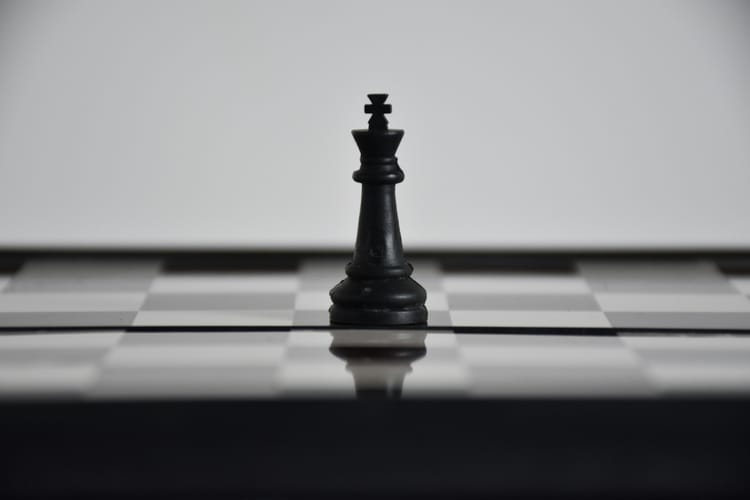
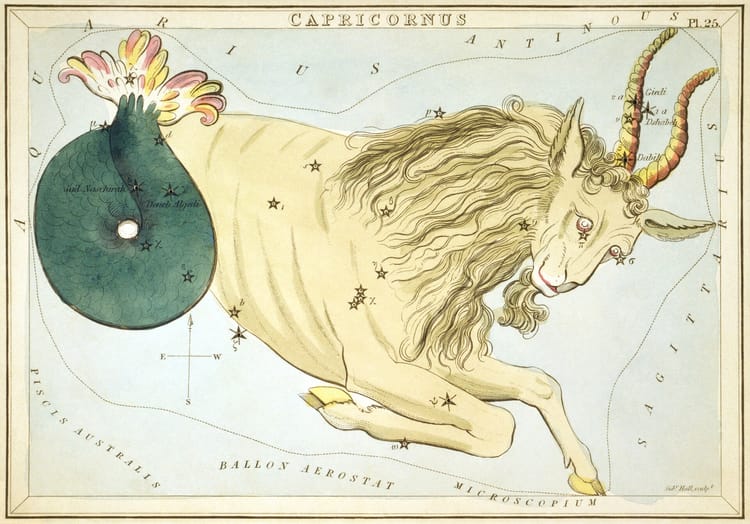
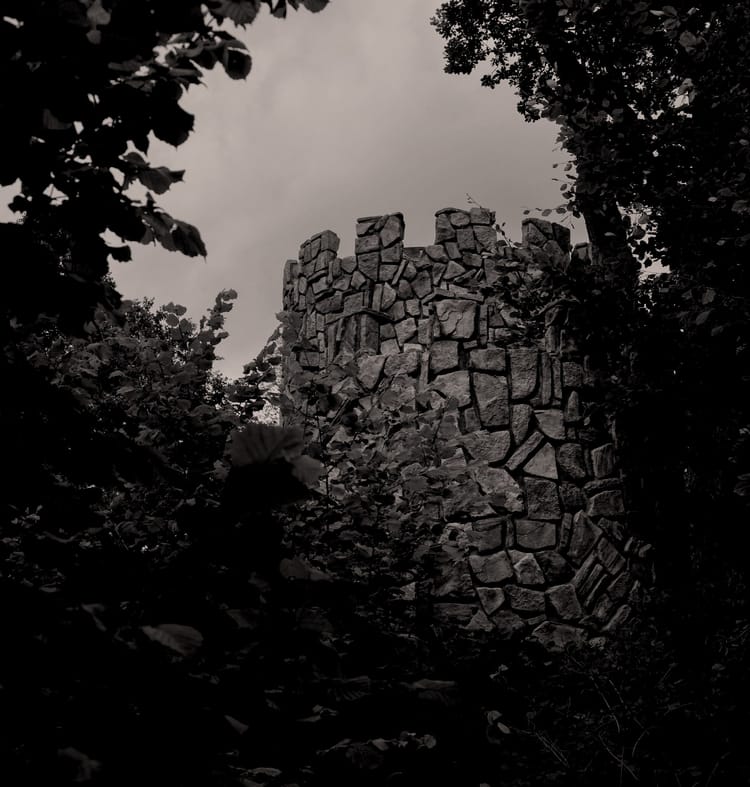
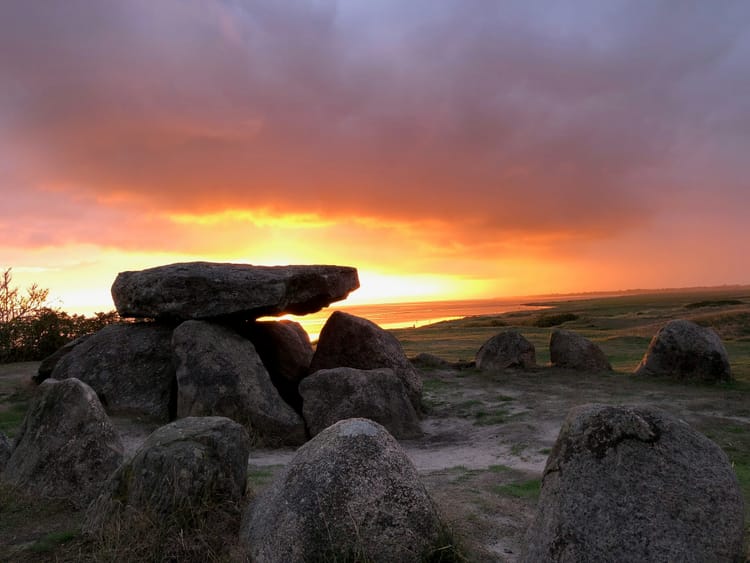
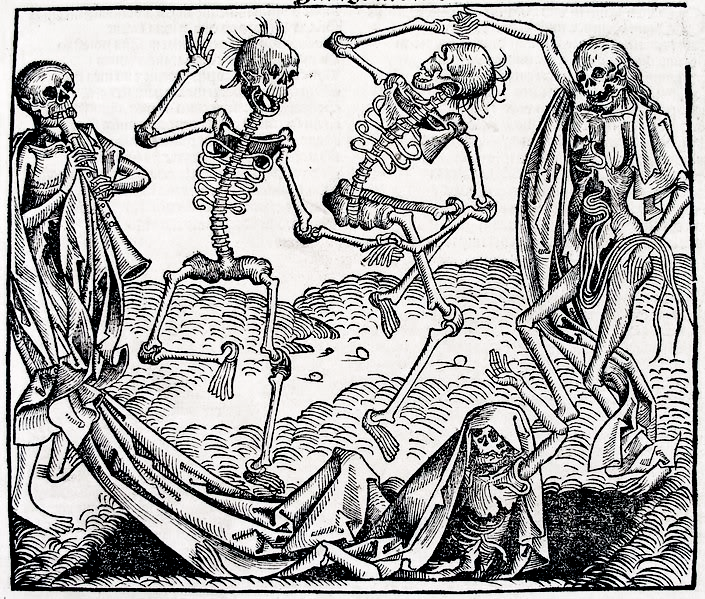
Member discussion